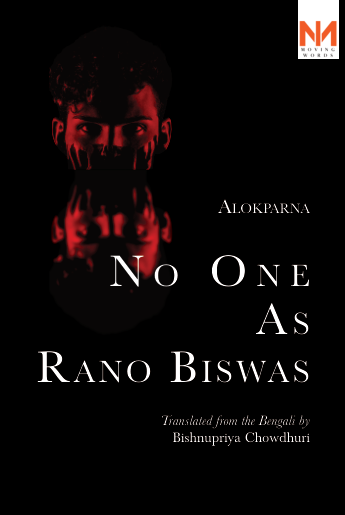TRANSLATED FROM THE BENGALI BY AMITAVA SEN
Raghunandan died, defeating the hour-long effort of the doctors of the district hospital. Naturally, the post-mortem followed. Surgeons retrieved about two and a half kilograms of shit from his rectum. They could come to the conclusion that Raghunandan’s death was not accidental but physical. Those who found him blood-bathed in the cornfield, would certainly be released from the legal purgatory.
His funeral arrangements were carried out after the arrival of the post-mortem report.
Raghunandan was a farm labor. The only one near and dear to him was his wife… He would wake up, take bath, have his meal, go to the field, return home at noon for lunch, go back to the field to work till dusk. Then, it was time for some country liquor till evening, only to return home, have a shower and go to bed after dinner. Most of the days, he would wake up past dawn.
In harvest seasons, this routine of his would not vary much.
Most of the men of his age and circumstance were used to this routine. So, Raghunandan could not be much differentiated from them, in as far as, his active life was concerned. Compared to the rest, he would oversleep.
The day he died, while working in the field, he went behind the bush for ablution. He tried his arse off to shit. But in vain, he farted aloud followed by profuse bleeding. His frantic cry made his fellow men think that he had been attacked by a dog or fox. Eventually, they rushed to him, armed. They found him in his blood-soaked ‘lungi’. His anus failed to hold the fresh blood, oozing out of it.
In deep pain, Raghunandan could only utter, “I needed badly.”
His fellowmen tried to stop the anal bleeding with his ‘lungi’ but, Raghunandan had already withered.
***
According to the account of his wife, given to the news media, in the weeks prior to his demise, he had not been to the latrine.
The two reporters glanced at each other. This kind of news might come only once in a decade. That way they were fortunate.
One of the two was the local correspondent of a daily. The other one was his assistant, who would take photographs. He was surveying the vicinity of the house. In one corner of the mud-coated courtyard, there was found a bathroom with a tin door. He showed his colleague the bathroom. The latrine was incongruous with the poverty-stricken rustic household. A marble pan, a cistern with a flush – every item of modernity was available.
It was beyond the expectation of both the journalists. The correspondent directly asked Raghunandan’s wife, “He didn’t use the loo in spite of such arrangements?”
His twenty eight-year old wife replied, rather reluctantly, “No Babu, he would say that it didn’t suit him, it was fit for womenfolk.”
The journalist then asked, “When was the bathroom installed?”
The wife was still recalcitrant. She said, “A few months ago.” Then, she added, “The Panchayat has installed the same in every household.”
The correspondent asked with furrowed brow, “Even then he would not go!”
The wife was rather free now. She replied, “I told you Babu, he couldn’t sit in the private loo. We’re not used to pull a device. They were used to defecating in the open field.”
The photojournalist blurted out, “Everything would be provided, and still the dumbos wouldn’t use them. And now this asshole died, leaving everything messed up.” Then he sputtered expletives, rather indistinctly.
Suddenly the wife reported, “All these weeks, he couldn’t even defecate in the open, Babu.”
The correspondent turned curious. He was wondering if some link hitherto unknown, would be revealed. He asked Raghunandan’s wife, “Why couldn’t he?”
The wife replied, “Last month, two kids from the neighboring village were beaten to death by some people. Anyone found defecating in the open would face the same fate.”
The correspondent had forgotten the incident. Now he remembered. One such incident had occurred indeed. Those two kids had been returning from their relation’s home. Suddenly, one of them had to shit. Seeing him, the other one unzipped his pants, too. Three bikers, passing by warned them. But how could one curb the impulse!
The three men, in a state of fury, beat the kids hard with the branch of a tree, lying on the ground. The kids were hit on their heads. They were declared brought dead on being rushed to the nearby hospital. Those three men were taken into the police custody. One human rights organization had been fighting for justice.
The case got more complicated as the kids belonged to the lower caste. But there was every possibility of the butchers getting released.
The correspondent thought of asking further questions. Even before that, the wife asked, “Babu, should I have to say anything more?” He was shot in the arm at such counter-question.
Then, he said, “No, nothing in particular. Let me just ask you, did your man stop shitting in the open after this case?”
The wife replied, “Almost. On and off, he would try to under the cover of the dark. But he would rarely get up before dawn. Once it was bright he would never want to.”
“Okay.” The correspondent switched off his mobile recording. The case was rather tough. In his brief stint as a journalist, he had never faced such a situation.
To make things easy, he tried to put all the events in order. Information was pretty enough for a story. He would now ask the busybodies, flocking around the house a few questions, and would wrap up.
***
Raghunandan’s neighbors almost echoed his wife. The whole truth was, Raghunandan stopped defecating once it was forbidden in the open. The waste got deposited in his body only to vitiate his entire system. He ended up meeting a horrendous death.
The correspondent began writing the report, keeping every information he gathered. He was rather satisfied while sending the report to the higher authority. This would definitely be the breaking news for the mass.
But the senior authority was virulent.
-What have you written?
-Why, Sir?
-They shit in the open, who told you to write all such stuff?
-They only…
-Rascal, is your brain in your arse? Don’t you know, now no one defecates in the open?
-What do you mean? Who says, no one shits? What nonsense!
-Stop, you dickhead! How dare you talk to me like this! Do you know, I can kick you out?
-I’m sorry, Sir.
-Listen, you can’t write that the village community shits in the open or why they can’t do the same now. Just write that the man’s number was up owing to non-usage of the private toilet.
-Won’t I give the reason of his refusal to shit?
-Stop talking rot.
-Sir, try to think… a credible reason has to be cited.
-Well, then write that he has been suffering from severe constipation. Do one thing, google an abstruse word for constipation and add to the report.
-Okay, Sir.
-Get the story ready in fifteen minutes. Make sure I don’t have to go through it again. Understand?
Eventually, the local correspondent did not lose his job. The report was published in the ‘exclusive’ section, that too in the digital platform. A dead Raghunandan, his helpless wife, and those few villagers had become a few minutes’ item of entertainment.
The link of the news, shared from the official Facebook page of the newspaper became viral almost in the twinkle of an eye. One Bengali remarked in the comment section: “The man literally broke his arse off,” followed by a couple of laughing emojis. The exclusivity of such news got maximum reach. Some netizens, however, remarked the whole thing as ‘obnoxious’, some even abused the correspondent, referring to his parental lineage, some reported the post. The reach was overwhelming, nonetheless.
***
The correspondent did not expect his job to be permanent after such an achievement. He only expected his credit to the news.
He thought it wrong.
(The original story is included in ‘Chhera Somoyer Galpo Sonkolon’ published by Nabajatak Prakashan at the Kolkata International Book Fair, 2023.)
Also, read a book review of I’m Your Poet: Selected Poems by Nilim Kumar , reviewed by Aritra Sanyal, and published in The Antonym:
Follow The Antonym’s Facebook page and Instagram account for more content and exciting updates.

































0 Comments